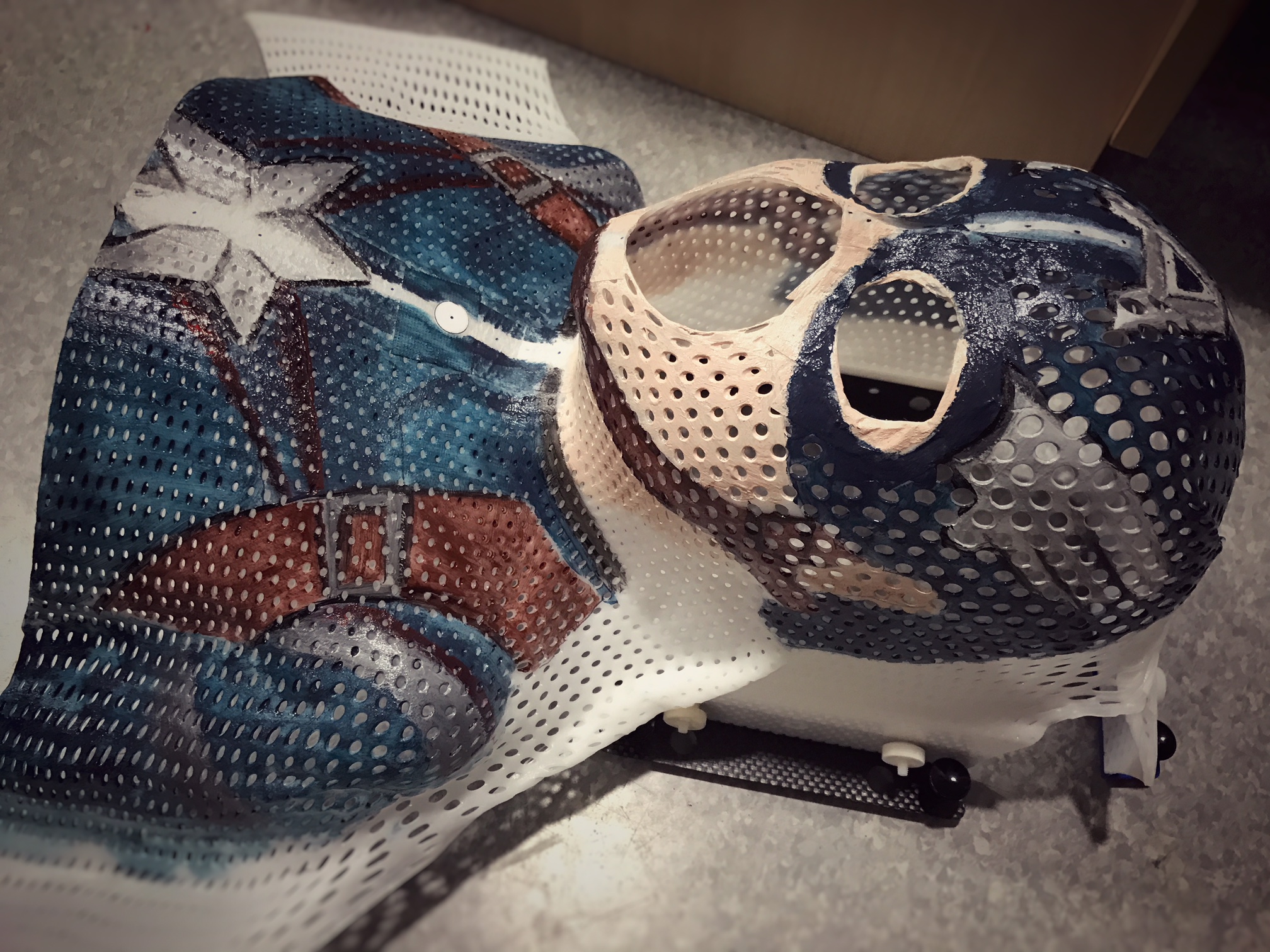
These painted masks are helping children to get through their radiotherapy Express & Star
Radiation can be used alone or as part of a treatment plan. When radiation is used in combination with other treatments, it can help to reduce the size of the tumor so that it's easier to remove during surgery or to make it more sensitive to chemotherapy.
Radiation Therapy Masks What to Expect & How to Cope Icon Cancer Centre
Back to top About radiation therapy Radiation therapy uses high-energy beams to treat cancer. It works by damaging the cancer cells and making it hard for them to reproduce. Your body is then naturally able to get rid of the damaged cancer cells. Radiation therapy also affects normal cells.

Radiation therapy mask over a patient's face Evidently Cochrane
Radiation therapy thermoplastic mask. If you are receiving radiation therapy for head and neck cancer, brain cancer, or brain metastases, then you will likely need to get a thermoplastic mask made for your treatment. The mask is worn every day for treatment. They are made of a plastic material and look like mesh.
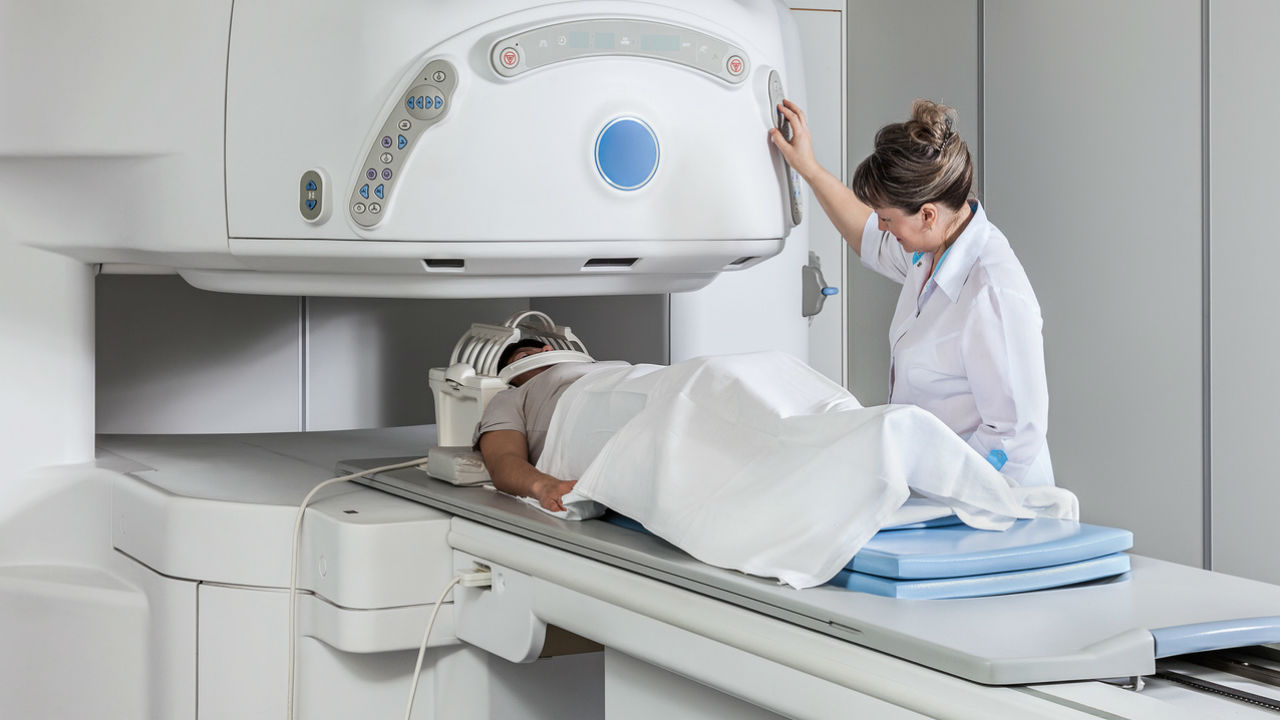
Managing the Radiation Therapy Mask EmpowHER Women's Health Online
Step 1: Making the Mask and Performing the Planning Simulation Masks can be customized too! This mask was decorated by Roswell Park radiation therapist Angela Szczygiel. Your mask fitting will take about 30 minutes. The radiation therapy technologists will be with you throughout this period to address any of your concerns or fears.
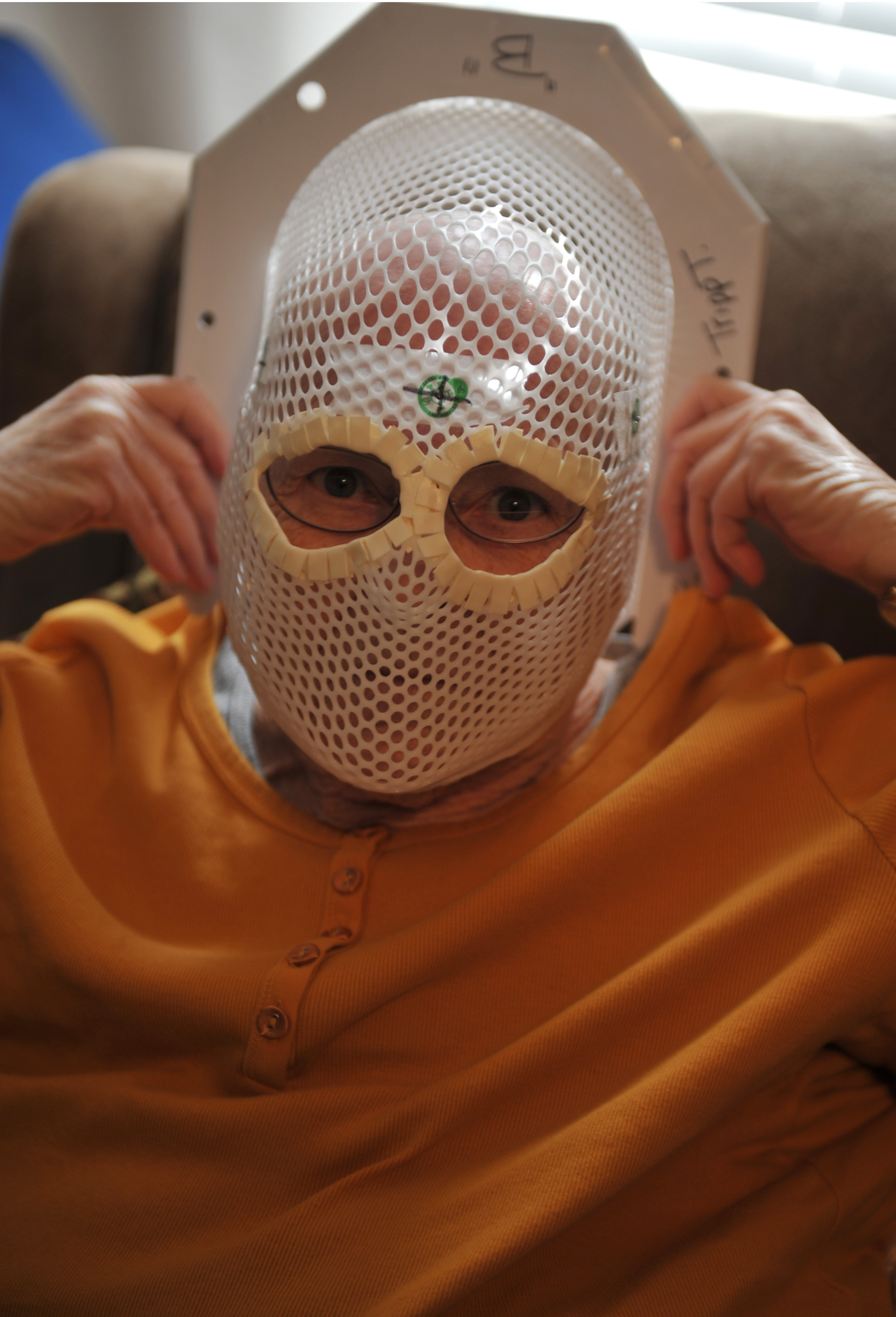
Cancer survivorship brings ‘hope’
Journal of Radiotherapy in Practice Article contents Abstract References Evaluation of thermoplastic Klarity mask use during intensity-modulated radiation therapy for head and neck carcinoma Published online by Cambridge University Press: 08 January 2018 Please note a has been issued for this article. Khaldoon Radaideh Article Correction Metrics

Reinforced radiotherapy mask with eyes nose open for brain tumor therapy Brain tumor, Brain
A thermoplastic mask is the most widely used immobilization device for head and neck cancer patients undergoing radiotherapy. The radiation therapist is the staff responsible to prepare these masks and set-up the patients for treatment, a procedure that requires time, patience, and precision.

These painted masks are helping children to get through their radiotherapy BT
For head and neck cancer patients, full head masks covering the face are needed while receiving radiation therapy, forcing patients to keep their eyes, nose and mouth closed. 1 Head and shoulder masks (HSM) covering the face, neck and shoulders were invented 2,3 to reduce setup variations at the shoulder level.
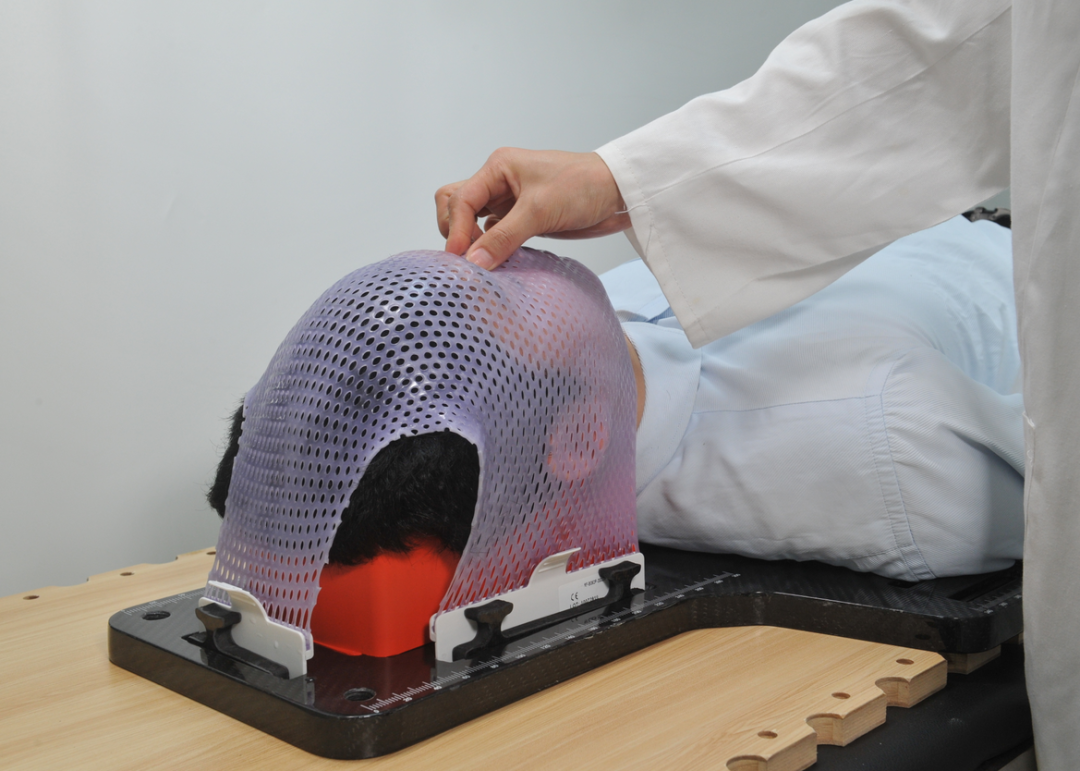
11 operate skills sharing for Moulding a radiotherapy maskRenfu Medical
Tranquility Series™ masks are designed with patient comfort and 3D tracking in mind. The masks feature unique patterns that offer a more open feel yet maintain rigidity and reproducibility. ZENTEC ® masks require less heating time than IMRT Reinforced Thermoplastics™ and have an established reputation of being highly conforming masks.

s shape head neck shoulder radiotherapy thermoplastic mask Neck shoulders, Head and neck, Neck
Dosimetrist. The dosimetrist helps your radiation oncologist calculate the right dose of radiation. Radiation therapist or radiation therapy technologist. This professional operates the treatment machines and gives people their scheduled treatments. Other health care professionals.

Radiation Therapy Face Mask All About Radiation
Overview Radiation therapy Enlarge image Radiation therapy, also called radiotherapy, is a type of cancer treatment. This treatment uses beams of intense energy to kill cancer cells. Radiation therapy most often uses X-rays. But other types of radiation therapy exist, including proton radiation. Modern methods of radiation are precise.
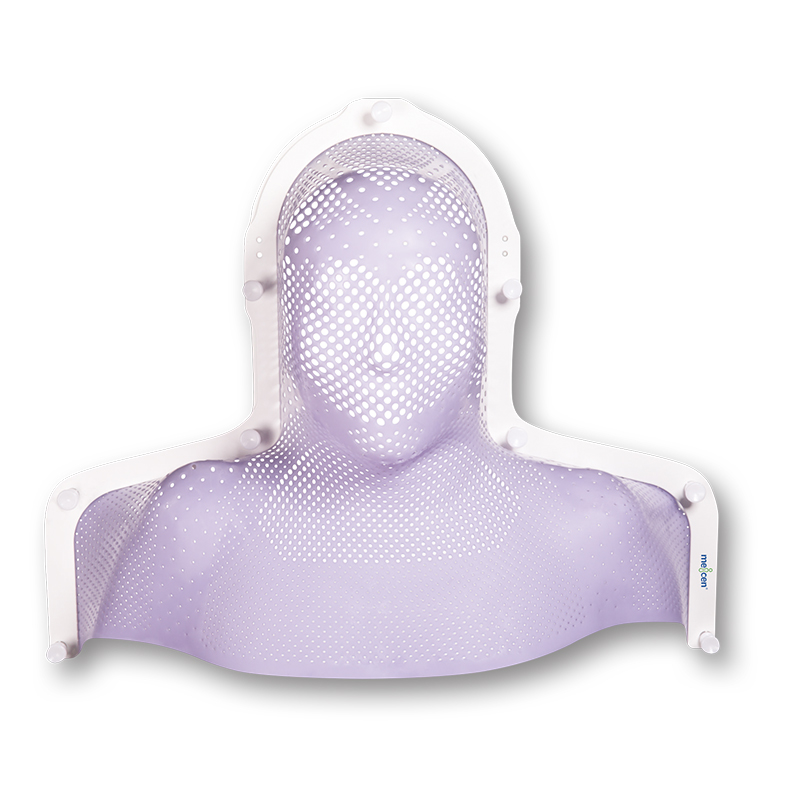
About Radiation Mask What patients should ExpectRenfu Medical
Radiation therapy thermoplastic mask used for daily treatment. If your treatment plan includes radiation therapy to your head & neck or brain, then you will likely have to get a thermoplastic mask made for your treatment. Thermoplastic masks are made of a plastic material that looks like mesh.
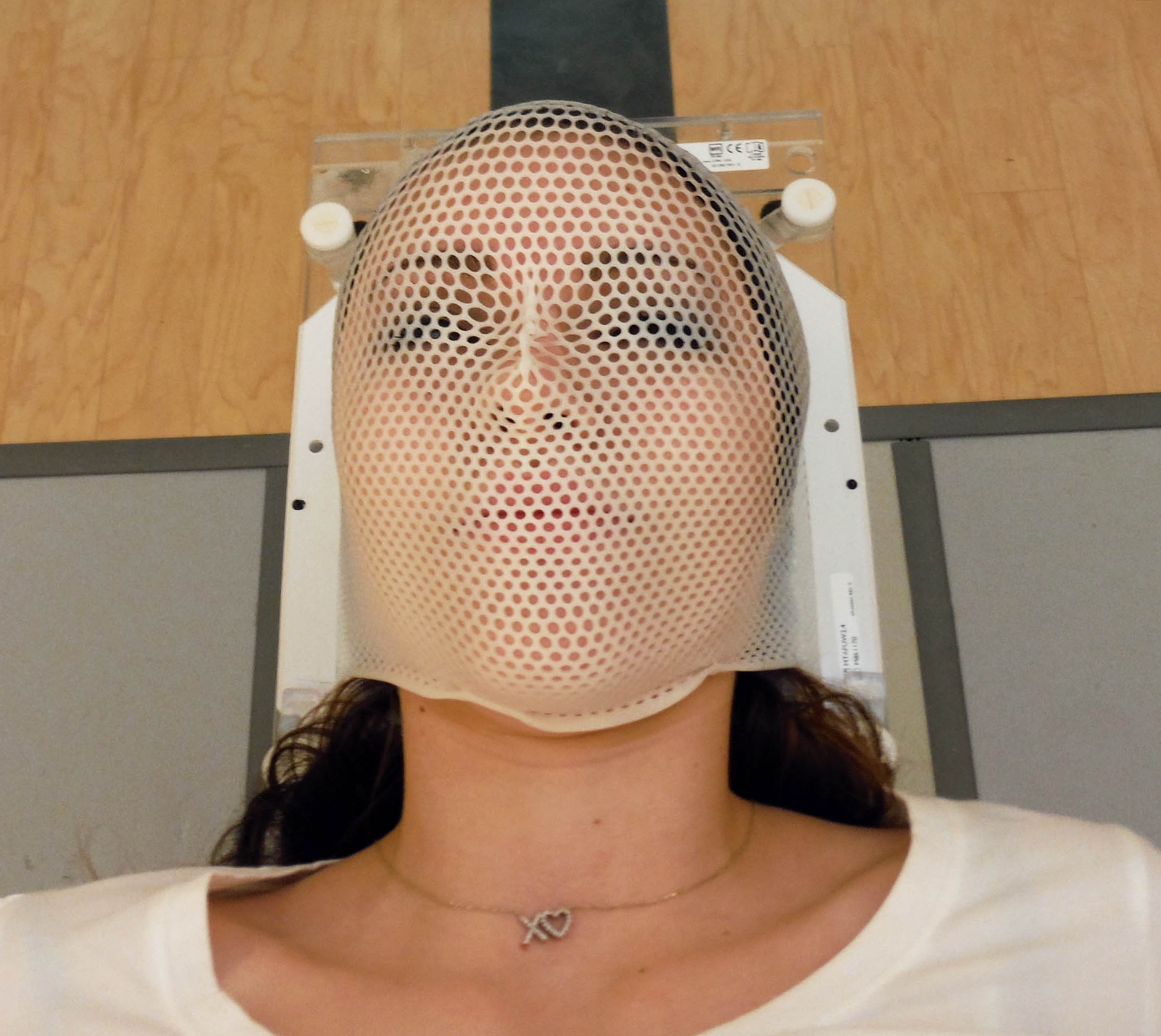
Cureus The Continuous Assessment of Cranial Motion in Thermoplastic Masks During CyberKnife
Radiation therapy is the term for treatment types that use radiation to destroy or shrink cancer cells and tumors. The two main types of radiation therapy for treating cancer are external.

Efficast® Masks Offers Gold Standard in Patient Immobilization for Radiation Therapy
For radiation therapy delivered to the head or neck area, it is mandatory to wear a radiation face mask during simulation and treatment sessions. Designed to be secured to a treatment table, this mask is used for head and neck tumors; brain, ENT (ear, nose, and throat) cancers, and metastasis.
TypeS Head, Neck & Shoulders Thermoplastic Mask
Receiving radiation therapy treatment with an immobilization mask is a source of anxiety in people with head and neck cancer (HNC). This study aimed to document the trajectory of situational anxiety during HNC treatment delivery and explore radiation therapists' (RTs') ability to identify it.
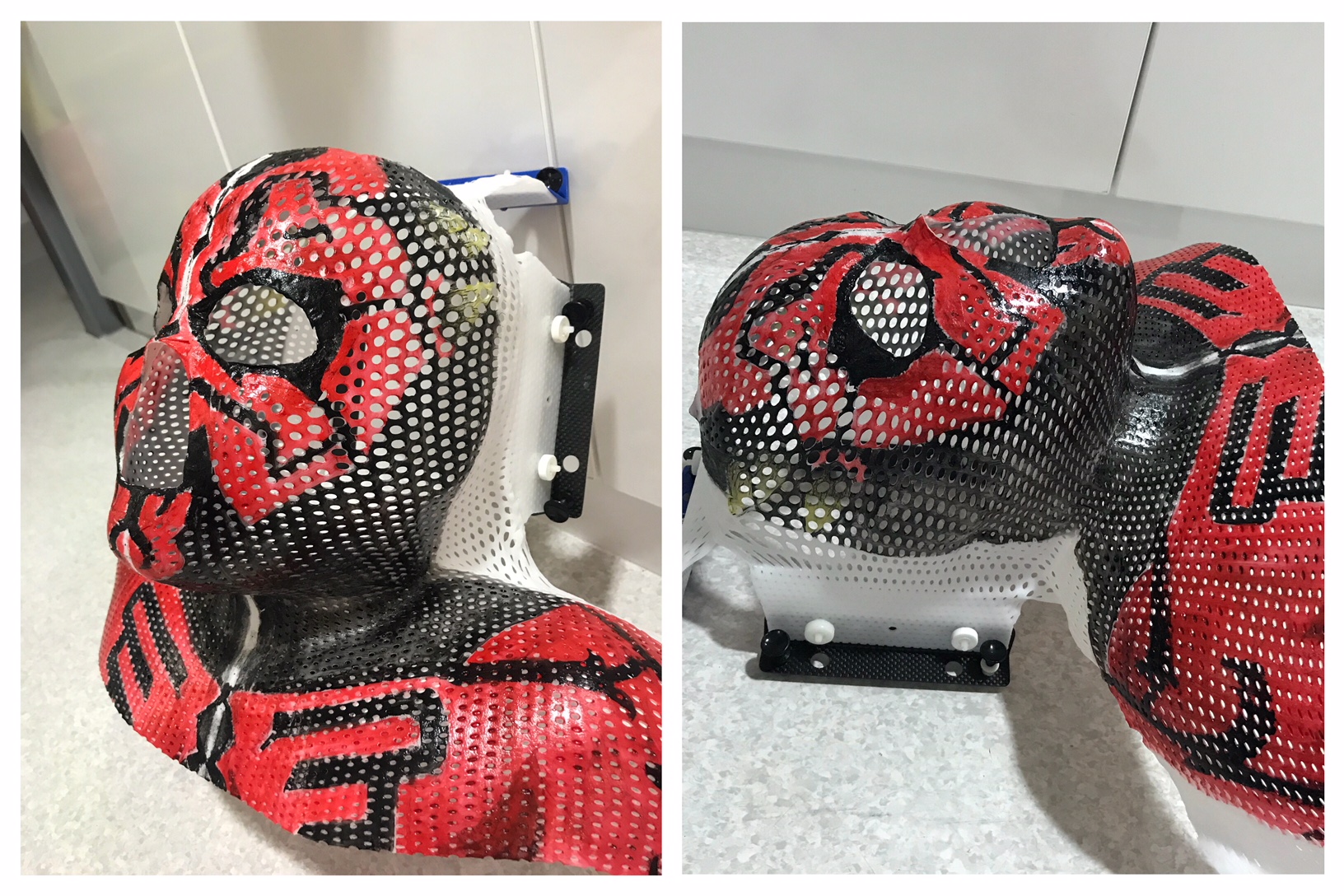
These painted masks are helping children to get through their radiotherapy Express & Star
Radiation Therapy (RT) is a key treatment modality for people diagnosed with head and neck cancer (HNC). Due to the anatomy of the head and neck region, precision in treatment is critical. To ensure safety, patient use of an immobilisation mask is standard practice, but its use can be distressing for individuals.
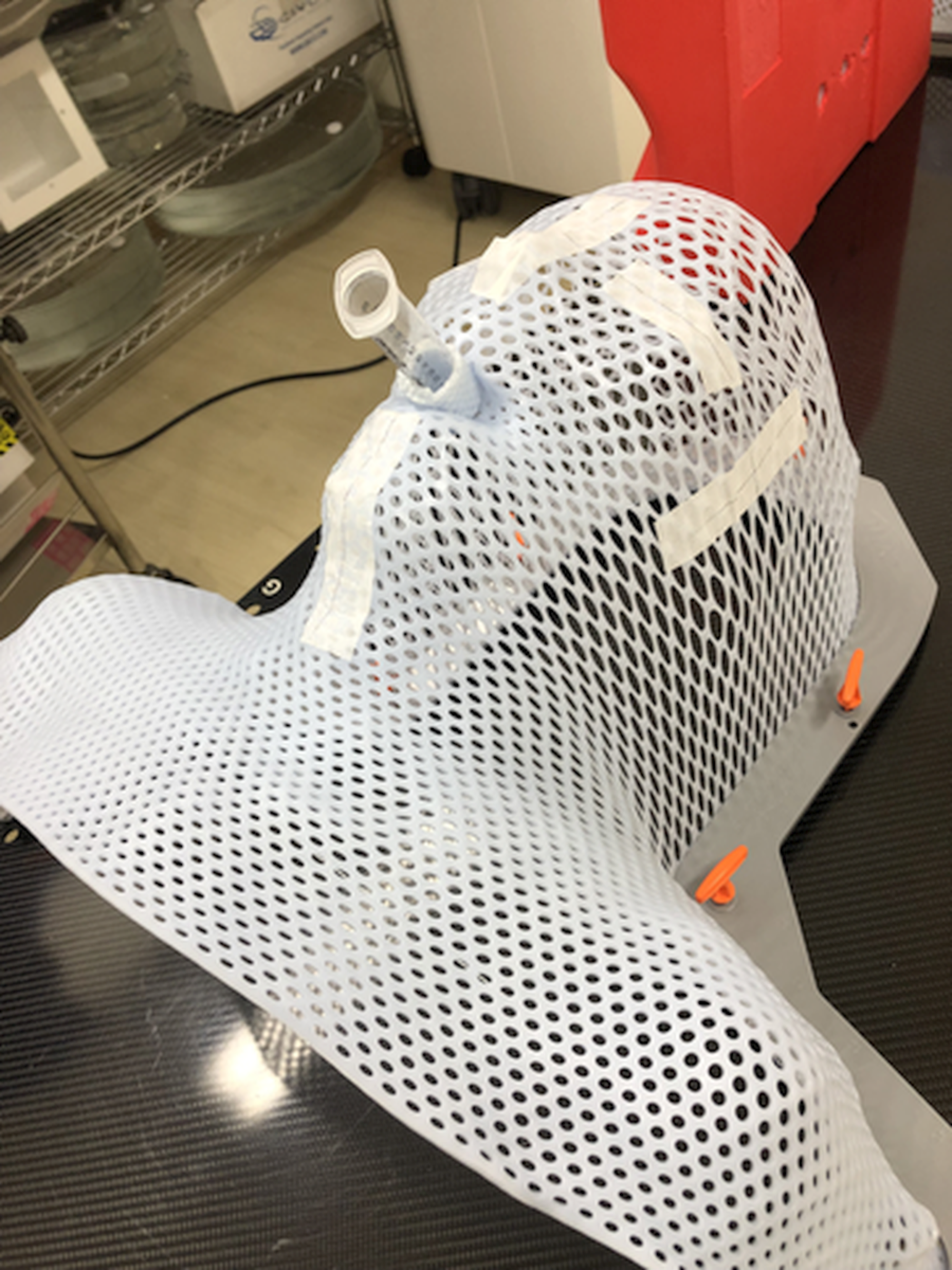
Cureus A New Tumor Delineation Method for Brain Metastases Radiotherapy by Jointly Referring
Introduction A thermoplastic mask is the most widely used immobilization device for head and neck cancer patients undergoing radiotherapy. The radiation therapist is the staff responsible to prepare these masks and set-up the patients for treatment, a procedure that requires time, patience, and precision. An understanding of Radiation therapists' perceptions regarding thermoplastic mask use.